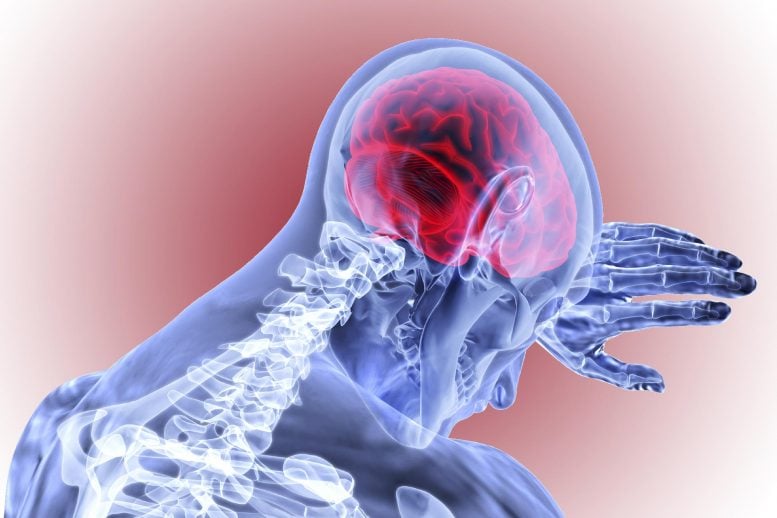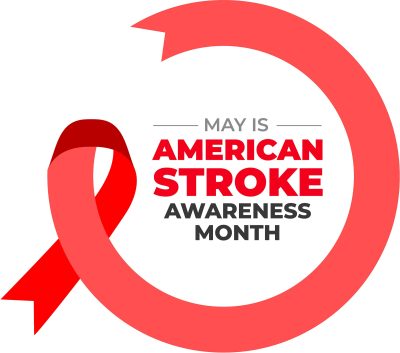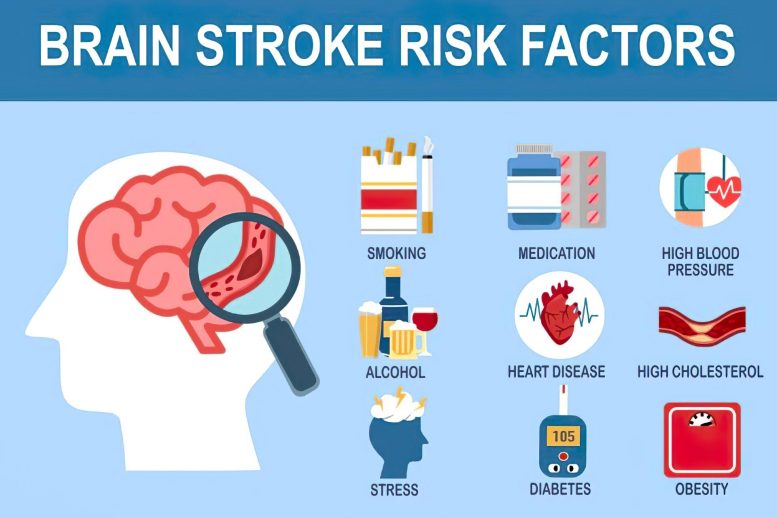
Stroke incidence has risen 50% since 2005, with diet and lifestyle playing key roles. Adopting healthier habits can prevent 80% of strokes, emphasizing the importance of National Stroke Awareness Month.
Since 2005, the chances of having a stroke have increased 50% worldwide, according to the World Health Organization, while another report, by the World Stroke Organization, states there are upwards of 12 million “new” strokes every year. All told, the data suggest that approximately one-in-four people globally can be expected to have a stroke during their lifetime.
These are sobering statistics to consider as we enter National Stroke Awareness Month, which began on May 1.

What Is Behind the Increase in Strokes?
A stroke — blockage of blood flow to the brain — can be caused by a number of different factors, and everyone has their own specific risk factors that may predispose them to a stroke, says May Nour, MD, PhD, an interventional neurologist and medical director of the UCLA Arline and Henry Gluck Stroke Rescue Program.
“In general, there are ‘modifiable’ risk factors and ‘non-modifiable’ risk factors. For example, genetics would be a non-modifiable risk factor. Some people are born with genes that have a higher predisposition to strokes, and for them it’s inherited,” Dr. Nour said.
That said, the vast majority of strokes are preventable with diet and other lifestyle changes. “These are the modifiable risk factors that can be customized to reduce a person’s risk,” Dr. Nour said. “Eighty percent of strokes are preventable,”
Reducing Stroke Risks
While age remains the most critical risk factor for stroke, diet also can play a significant role. “The incidence of obesity is increasing around the world, and the quality of our diets is decreasing,” says Dana Hunnes, PhD, adjunct assistant professor of community health sciences at the UCLA Fielding School of Public Health and a clinical dietitian at Ronald Reagan UCLA Medical Center.
She attributes the rise in stroke risks globally to the same factors that contribute to the global obesity crisis. “People are eating more processed foods. This is a global phenomenon,” Dr. Hunnes said.

But unlike genes and age, diet is a modifiable risk factor. “There are many things that can potentially increase one’s risk for a stroke. A diet that is high in animal proteins or one that includes foods that are highly inflammatory increase stroke risk,” Dr. Hunnes said.
Altering our diets can go a long way toward reducing risk, said Kayla Kilani, a nurse manager with the UCLA Health Mobile Stroke Unit. “We want to stay away from overdoing the obvious things that can put us at high risk for a stroke, such as fast foods and sugar-filled snacks,” Kilani said. “I tell people to shop around the perimeter of the grocery store; that is where you tend to find the healthier items versus the processed foods that are in the center aisles and frozen food sections.”
Dr. Hunnes added that there are specific diets that are recommended to decrease stroke risks. “We know that the Mediterranean diet is probably one of the best diets out there for reducing risk of disease. Eating a diet that is rich in fresh vegetables and fruits and whole grains is one of the best things you can do to help reduce the risk of stroke,” Dr. Hunnes said.
In addition to eating a healthy diet, the Centers for Disease Control and Prevention recommends additional steps to reduce stroke risks:
- Don’t smoke (or stop if you do)
- Limit alcohol consumption
- Exercise regularly
- Monitor and control blood pressure
- Monitor blood-sugar levels to control diabetes
Learn more about reducing stroke risks by visiting the UCLA Health Comprehensive Stroke Center.
Never miss a breakthrough: Join the SciTechDaily newsletter.
2 Comments
Blah-Blah-Blah ! Exploding, Normalized Obesity ! Surgery for Obese children ! BigPharma, ourself-serving SickCare system & Insurance companies do not want us to go VEGAN !!!!!!!
How much of this 50% is realised over the past few years since mRNA jabs were foisted on populations? Rather like excess death levels, it will be caused by everything but these jabs. Experts are being censored, suppressed and threatened for speaking about this.